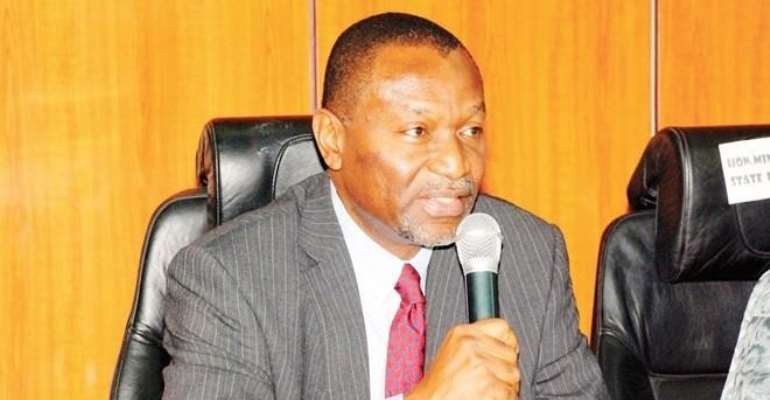Making haste slowly – The Nation

The recent announcement by the Minister of Budget and National Planning, Senator Udo Udoma, that President Muhammadu Buhari will inaugurate an economic recovery plan next month is yet another demonstration of lethargy by an administration that promised much but has so far delivered disappointingly little.
Formally called the National Economic Reconstruction and Growth Plan, it is structured upon the Strategic Implementation Plan (SIP) from which the Medium-Term Expenditure and Fiscal Strategy Paper (MTEF) was developed. It will also incorporate the Medium-Term Sector Strategies (MTSS) created for large-spending ministries and sectoral plans for five thematic areas, namely macroeconomic stability, economic diversification, job creation and social inclusion, governance, and human capital development. The economic recovery plan will mainly serve as an overarching policy guide, thereby promoting enhanced coherence and coordination.
Perhaps the most obvious problem with this admittedly far-reaching plan is the lateness of its appearance: it is emerging fully 18 months into the life of the four-year tenure of this administration, and some two years after the start of Nigeria's economic meltdown. So much time has been spent in preparing to tackle the country's deep-rooted economic malaise that it can legitimately be wondered if there will be enough time left to actually tackle it.
Such sluggishness was first seen in the distressingly long time it took for the federal cabinet to be constituted. For months, businesses and investors put their plans on hold while they waited to see who they would be working with, and what the main economic policies of the incoming administration were.
To worsen matters, conflicting signals from major economic actors like the Central Bank of Nigeria, the Federal Ministry of Finance, the Economic Management Team and the Presidency itself kept confusing stakeholders about exactly how the Federal Government planned to address the unfolding crisis.
This is what has given rise to accusations that the Buhari administration lacks a comprehensive economic blueprint. Those allegations derive much of their force from the fact that there was little discernible coordination on display in the government's response to the economic situation. It was seen most especially in the open disagreement between public office-holders on the vexed questions of naira devaluation, interest rates, the sale of national assets and the proposed granting of emergency powers to the president.
The economic recovery plan provides Nigeria with a vital opportunity to enunciate a long-term economic vision where one has been sorely lacking. It must clearly state what the Federal Government proposes to do, and show exactly how it intends to do it. It must explicitly declare its avowed objectives, visibly outline the definite steps to be taken towards the attainment of those objectives, detail the exact contributions from all stakeholders, and provide precise timelines and deadlines for the achievement of strictly-demarcated set targets.
Widespread consultation is absolutely vital if the plan is to succeed. As the Buhari administration's embarrassing reversals at the Senate over the planned U.S. $29.96 billion loan have demonstrated, poorly-defined proposals will not receive the cooperation of the National Assembly. The organised private sector and labour unions cannot be expected to sign off on economic policies they did not provide sufficient input on. The long-suffering citizenry must be fully convinced before they can agree to programmes which almost certainly will involve additional pain for them, at least in the immediate interim.
Fortunately, it appears that government is beginning to learn from its missteps. The recent national economic retreat brought together some of the nation's most prominent economic managers and has apparently enabled them to come up with a coherent set of proposals on how best to bring about sustained economic growth. Senator Udoma has promised that there will be comprehensive consultation in the final run-up to the inauguration of the economic recovery programme. The time for words has long gone; only purposeful action will now suffice.
